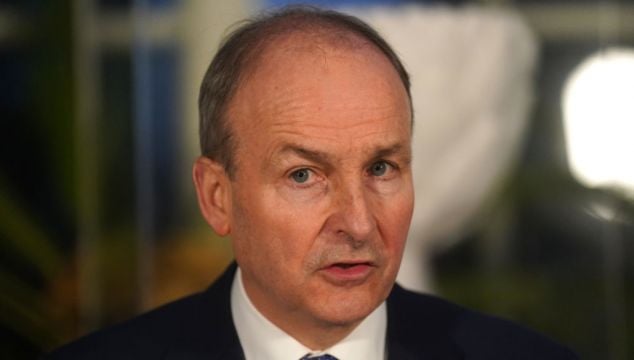Tánaiste Micheál Martin has said the findings of a report into child mental health services in Ireland are “unacceptable”.
It comes after the HSE admitted to failings in mental health services for children and young people after an independent report outlined a series of issues with follow-up appointments and monitoring children on medication.
The Mental Health Commission’s report published on Monday found that children and young people with open cases have been “lost” in the system.
The MHC has published an Interim Report from an Independent Review of the Provision of CAMHS services, has found that children and young people accessing these services have been "lost" to follow-up care.
🔗https://t.co/GevzyudAHe#MentalHealthMatters #CAMHSInterimReport pic.twitter.com/z7gSSJHghQ— Mental Health Commission Ireland (@MHCIreland) January 23, 2023
Advertisement
In the Midwest community healthcare organisation (CHO), there were 140 “lost” cases within the Child and Adolescent Mental Health Services (Camhs) team, meaning they did not have an appointment, in some cases for up to two years.
These included some who had reached their 18th birthday with no discharge plan or transition to adult services, or any advice about medication or follow-up care.
The report also found that there was evidence some teams were not monitoring antipsychotic medication in accordance with international standards – and pointed out that there are currently no national standards in relation to this.
This means that some children were taking medication without appropriate blood tests and physical monitoring, which is essential when on this medication.
The report also found many HSE teams and CHOs had team members working beyond their contracted hours, often without compensation, to continue to provide a service.
There was also evidence of stress and burnout in a significant number of employees, the report said.
“The interim report found that CAMHS staff worked extremely hard within the often-limited resources to try to provide a good service to the public,” it said.
Mr Martin said the findings of the report were “unacceptable, (and) very, very concerning”.
“I think there has to be and is an ongoing review in terms of what has happened. The HSE has said that they have engaged with every child that was not catered to adequately by the Camhs service,” he told reporters in Brussels.
“But also, I think we have to look at governance issues again in respect of the mental health services.
“A lot of investment has gone in, over the last decade or so there has been significant investment in child and adolescent centres.
“The numbers going forward for treatment has increased very significantly, the referrals have increased very significantly, but still, no child should be lost in the system.”
HSE chief operations officer Damien McCallion said the organisation had responded to individual cases highlighted by the report, but admitted there were “significant issues”.
“Where cases were identified, individual cases such as those cited in the report, those were addressed immediately,” he said on RTÉ Radio One, referring to the 140 children in the Midwest.
“We are not happy with the issues that have been identified and the service that’s there, but that’s no reflection on our staff who have worked really hard and continue to work hard to try and deal with some of the issues and the challenges that they face.
“Clearly there are significant issues in the service and those have been highlighted by the commission and we’re working with the commission and working with our CHOs… to address those challenges.
“Having said that, there are 20,000 children getting care within our Camhs service at the moment, and over a quarter of a million reviews are done or consultations with children annually. So there are some people for whom the service is working well, but it is very clear that there’s significant work needed to improve our services.”
He said this included appointing a national lead clinically and operationally, as well as additional training.
The inspector who wrote the report, Dr Susan Finnerty, published an interim paper due to “the serious concerns and consequent risks for some patients” that were found across four out of the five CHOs examined so far, so “urgent and targeted” action can be taken.
The College of Psychiatrists of Ireland welcomed the interim report, but emphasised issues with poor governance structures and support systems, as well as problems with doctor recruitment and retention.
“Decades of poor resourcing, wholly insufficient funding, lack of basic ICT that includes electronic data management and patient record systems, and no meaningful implementation of official plans to either recruit or retain doctors in psychiatry, have led to the situation we are facing today, particularly in Camhs,” it said.







